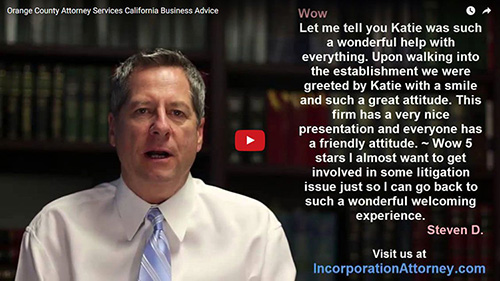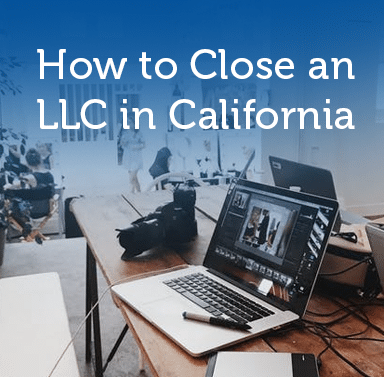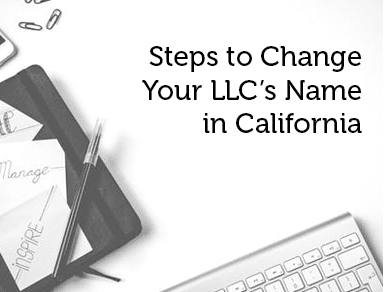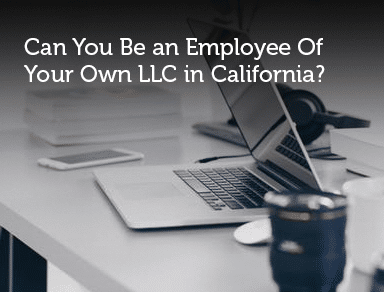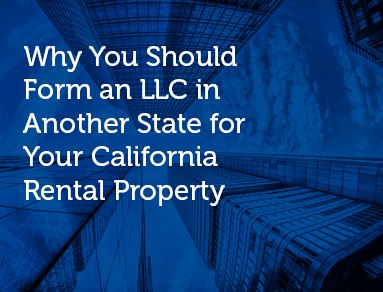More About Limited Liability Companies
Tenants can and will sue given the right circumstances; it could be for some injury suffered within the premises for which they’re blaming you as the rental property owner. One of the things you need to know as a rental property owner is how to limit your liability in case a tenant decides to sue you.
If a rental property is under your name, then all your assets (business or personal) will be at risk in case one of your tenants decides to sue you. However, if you had set up an LLC to own your rental property, you would have some degree of asset protection.
Unfortunately, in the state of California, losing in court can mean losing what you have under your LLC. In such a situation, you can potentially lose all of your investments.
You need to protect your real estate assets in California.
To avoid losing everything, you’ll need to consider creating that protection. One way to do so is to set up an LLC in another state in relation to your rental property in California.
What are the benefits of forming an out-of-state LLC for your rental property in California?
The asset protection you get from having an LLC can go two different ways. You’ll have protection for your personal assets or assets under your own name, and protection for your business assets or assets under your LLC.
- Personal asset protection – this means assets under your own name will be protected in case someone sued your LLC, and got a favorable judgment.
- LLC asset protection – this is the other way around. You’ll need this kind of protection if you have done something that made you liable personally and somebody sued you. If a tenant gets a judgment against you, and you show that you own an interest in an LLC that owns a rental property, the tenant will have to see if the law of the state allows him to take that interest from you.

What states are the best choice when forming an LLC for a rental property in California?
LLC laws of states vary. If you want a full range of asset protection it is sometimes not enough to set up an LLC in the state where your property is located. That’s why you have to choose another state, a foreign state, to set up an LLC which will form part of your overall LLC structure.
When choosing a state to form your foreign LLC one essential factor to consider is the charging order protection that the state provides.

What is a charging order?
A charging order is granted by a court, giving a winning party or a judgment creditor the right to attach distributions made to you from your LLC.
If your LLC has money and you take it out of the LLC by taking a distribution, then that money has to be used to pay off your judgment creditor. That’s what a charging order does.
How does the benefit of charging order protection work?
So, how can you protect yourself and your business, so you don’t get stuck having to pay someone who sued you? If it’s not enough to simply set up an LLC in the state where your rental property is located, then what is? The answer is to set up an LLC in another state that gives charging order protection. Because if you have the benefit of charging order protection, you’ll have to pay only if you take money out of your LLC. So, naturally, you would refrain from taking any money out. The attorney on the other side knows it, and it’s more likely that the person who sued you will
choose to settle.
The Mistake: Having an out-of-state LLC DIRECTLY own your California rental property is not the way to go.
An out-of-state or foreign LLC is part of the structure that you want, but having it directly own your California rental property is a mistake. In forming an LLC for your rental property in another state, you can choose between the states of Nevada, Texas, and Wyoming since these states give good charging order protection.
But why is it a mistake to have a foreign LLC directly own your California rental property?
Let’s assume that you own a California rental property, and you want the benefits that come with a Nevada LLC. So, you set up a Nevada LLC to own your California rental property.
You now have an out-of-state LLC that directly owns your California rental property.
This business ownership setup is not advisable. If you do this you’ll have an out-of-state LLC that owns your California rental property but is not registered to do business in California. In that situation, you can’t manage your California rental property since the LLC that owns it is not registered to do business in the same state where the property is in.
If you subsequently register your Nevada LLC in the state of California, you will lose some of the benefits that the state of Nevada provides. This also means having to pay double the fees just for a single LLC.
Simply having an out-of-state LLC own your California rental property is not going to allow your business to accomplish what it needs and will not provide you the protection you want.
How should you set up a foreign LLC for your California rental property to get charging order protection?
The way that your California rental property can take advantage of the laws of other states like Nevada is for you to put a California LLC in between the Nevada LLC and your California rental property.
Using Nevada again as an example. Have the Nevada LLC own your California LLC and have that California LLC own your California rental property.
With this kind of set-up, you’ll own a Nevada LLC that gives you charging order protection, and your Nevada LLC will own the California LLC so there’s no connection between you and the California LLC.
Now, if you were sued and you get asked what property/asset you own, you’ll say you own a Nevada LLC; you don’t own the California LLC, the Nevada LLC owns that, and since Nevada provides charging order protection, your California rental property is protected from the charging order that might have been issued against you personally.
This is how it would look like; the charging order’s reach would extend only to what is in the circle. As you will see, it will not reach your California rental property.
Again, the key takeaway in forming an LLC for your rental property in California is to have the foreign LLC own the California LLC, and have the California LLC own the California rental property. That is how you get charging order protection.
However, although getting charging protection for your California rental property is quite important, there is another kind of benefit you could have if your LLCs are set up the right way. We recommend ensuring you obtain anonymity with your ownership of the LLC.
How should you set up your LLC for your California rental property so that nobody knows you own the property?
When you set up your LLC in a state that provides anonymity then your name will not appear on the LLC. Potentially, nobody would know that you own the LLC.
Why would you want anonymity?

To have anonymity, it’s very important that you start setting up an LLC in states like Wyoming or Nevada first before you set up an LLC in California, where the rental property is located. Also, when you’re setting up your California LLC you would want to make sure that the Wyoming LLC or Nevada LLC is a member of that California LLC.
For this example, let’s use Wyoming.
When you set up your Wyoming LLC, you would want to set it up as a manager-managed LLC. After the set-up is complete, your initial manager resigns, and you will replace him as the undisclosed manager of the Wyoming LLC. That’s how you get anonymity.
Now, when you form your LLC for your rental property in California, set it up as a member-managed LLC, as opposed to a manager-managed LLC.
The Wyoming LLC will then be the member/owner of that California LLC. This is what it would look like.
Structuring your LLCs like this allows you to be hidden while effectively maintaining your interest in your California rental property. You can trace how you are undisclosed but effectively in control by asking these questions:
- Who owns the California Rental Property? The California LLC.
- Who owns the California LLC? The Wyoming LLC.
- Who owns Wyoming LLC? Undisclosed. But we know who controls it don’t we?
Now you have the benefit of anonymity because, again, you’re the undisclosed manager of the Wyoming LLC.
Should I have an LLC for my rental property in California?
The short answer is yes, but it would be best if your LLC was actually out of state. Having it under an LLC in California will offer some separation from your personal assets, but you can still be liable for everything under the LLC in a lawsuit. However if your rental property is under an LLC in another state with more protection for assets under an LLC, you’ll have better protection.
Setting up an LLC for your rental property in California to get charging order protection and anonymity is essential for those with a lot to lose.
Protection for rental property owners is essential especially now where anybody can claim damages for just about anything they can think of. Unjustified claims and disturbing threats are not new, and they keep you up at night with the fear of losing part of what you have built, or worse.
Setting up foreign LLCs together with your California LLC for your California rental property to have charging order protection and anonymity is not being deceptive, but rather it is for your protection as a rental property owner.
When setting up your foreign LLCs to have these protections, clear communication with a legal professional is paramount. An oversight or missteps, and you could be opening yourself up to a major risk for your assets.
That’s why it’s better to have an expert on California protections to help you deal with things outside the state–so that your LLC is providing adequate protection. At Incorporation Attorneys, we help you choose your entity all the way to set it up, and we stay with you for all aspects of legal maintenance; we handle everything.
Contact us so we can discuss how to set up an LLC for you.




